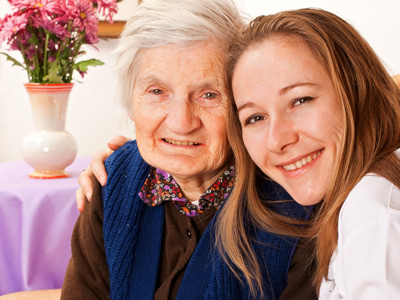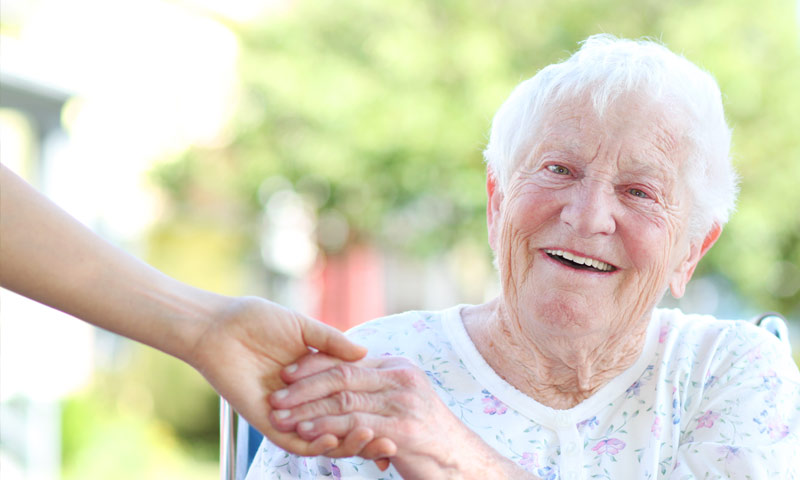Latest News from Everycare
Up to a quarter of the home care workers will be made to look for other jobs if Covid-19 vaccination becomes mandatory, a new survey reveals.
 A six-week consultation was launched on 9 September to decide whether Covid and flu vaccinations should be made compulsory for home care workers and the NHS workforce, but according to the latest survey published by the Homecare Association, it reveals almost a quarter of home care providers thought they would lose over 25 per cent of their staff, “creating a risk” that home care will not be available for “tens of thousands of older and disabled people” who need support in their own home.
A six-week consultation was launched on 9 September to decide whether Covid and flu vaccinations should be made compulsory for home care workers and the NHS workforce, but according to the latest survey published by the Homecare Association, it reveals almost a quarter of home care providers thought they would lose over 25 per cent of their staff, “creating a risk” that home care will not be available for “tens of thousands of older and disabled people” who need support in their own home.
The survey also reported around a third of providers would expect to lose under 10 per cent of their workforce, while 40 per cent reported that they would lose between 10 and 24 per cent of their staff. Over 90 per cent thought it was certain or likely that recruitment will become harder if this comes into force and over 80 per cent thought they would need to dismiss staff as a result.
Dr Jane Townson, chief executive of the Homecare Association said: “While progress is being made where currently 83.2 per cent of home care workers have had the first dose of vaccine, and 73.7 per cent the second dose.
“We understand people who use services, and their families expect care workers to be vaccinated. Vaccination is also desirable to help protect the health and safety of care workers themselves.
“The Homecare Association strongly supports vaccination of the homecare workforce and we lobbied hard, right from the beginning, to ensure it was as easy as possible for home care workers to access vaccinations.”
The the full story visit the homecare.co.uk website

A recent report has highlighted the fact that in large areas of the UK local authorities are failing to pay care providers enough to provide a service that can break even, putting huge pressure on their ability to recruit and retain staff.
It means, despite losing staff faster than they can be replaced, companies are unable to raise wages, says the Homecare Association.
Low wages and feeling undervalued are key factors leading care staff to quit, says the report.
Councils say they do not have enough money to pay companies more.
The Homecare Association, which represents some 2,340 care providers, calculates the true minimum cost of providing an hour of homecare in the UK is £21.43.
To read the full story visit the BBC website.
 Recent news headlines have reported dementia is the leading cause of death in the UK.
Recent news headlines have reported dementia is the leading cause of death in the UK.
Dr Clare Walton from the Alzheimer’s Society research team looked at the reasons why deaths from dementia are on the rise and how the numbers compare with deaths due to other major diseases.
The latest death statistics for England and Wales, released by The Office for National Statistics (ONS), showed the number of people dying of dementia is steadily increasing year on year.
In contrast, the number of people dying from heart disease and stroke has been declining. In 2015, dementia overtook heart disease and stroke as the UK’s biggest cause of death. The percentage of all UK deaths from the top four leading causes in 2017 were dementia, heart disease, stroke and lung cancer.

When it comes to deciding whether your parents, elderly friend or relative needs additional help to ensure they can live safely in their own home, it can be tricky to know where to start. The wheres, whens and hows of the situation are not simple. It can easily start to feel overwhelming as you try to get to grips with all the options available, the costs, and what is best for the elderly person themselves.
8 tips for deciding if an elderly person needs some extra support.
• Assess the person’s needs – This can feel quite difficult. Do you ask the person, observe them, ask other people who know them, or something else? You may not know what your parent, relative or friend requires, or what is available. We can help you organise your thoughts. You can fill in our and use your answers to establish what level and kind of support is needed. It’s a handy starting point for everyone involved.
Does your parent, relative or friend have:
• Family support – are there family or friends living locally and are they available to help?
• A safe home environment – is their home as safe as it can be? What barriers restrict their ability to stay in their own home? For example dangerous steps or staircases, a large garden, or badly maintained security?
• Medical needs – does your parent, relative or friend have increasing medical needs that they can’t manage on their own? Is the person taking their medication as per prescription? Do they need assistance?
• Good cognitive health – Can they clearly think, learn and remember, able to carry out everyday activities safely?
• Mobility – are they able to safely move around their home and ideally to local shops, GP surgeries and to see friends and relatives?
• Personal hygiene – Can they wash themselves and keep themselves clean? Do you think they are struggling with using the bath or shower on their own?
• How much support are they already getting around the above, and how much help do they realistically need to stay safe and healthy?
If your mum can’t see that well and lives in a rural area on her own, her needs will be very different from someone else’s healthy dad, who lives in a flat in the city surrounded by relatives but is starting to become frail and can’t get to the shops.
• Don’t forget – the person in need of care is still a person!
It’s vital that you involve the person themselves in the process from end to end, as a partner in it. Just because they’re getting on it doesn’t mean they’ve lost their pride, their love of independence, their unique personality. Nobody wants to lose control of their life, and that means sensitivity and positivity are both essential. Together you’ll find a clear way through any potential resistance faster and more easily.
 A six-week consultation was launched on 9 September to decide whether Covid and flu vaccinations should be made compulsory for home care workers and the NHS workforce, but according to the latest survey published by the Homecare Association, it reveals almost a quarter of home care providers thought they would lose over 25 per cent of their staff, “creating a risk” that home care will not be available for “tens of thousands of older and disabled people” who need support in their own home.
A six-week consultation was launched on 9 September to decide whether Covid and flu vaccinations should be made compulsory for home care workers and the NHS workforce, but according to the latest survey published by the Homecare Association, it reveals almost a quarter of home care providers thought they would lose over 25 per cent of their staff, “creating a risk” that home care will not be available for “tens of thousands of older and disabled people” who need support in their own home.



